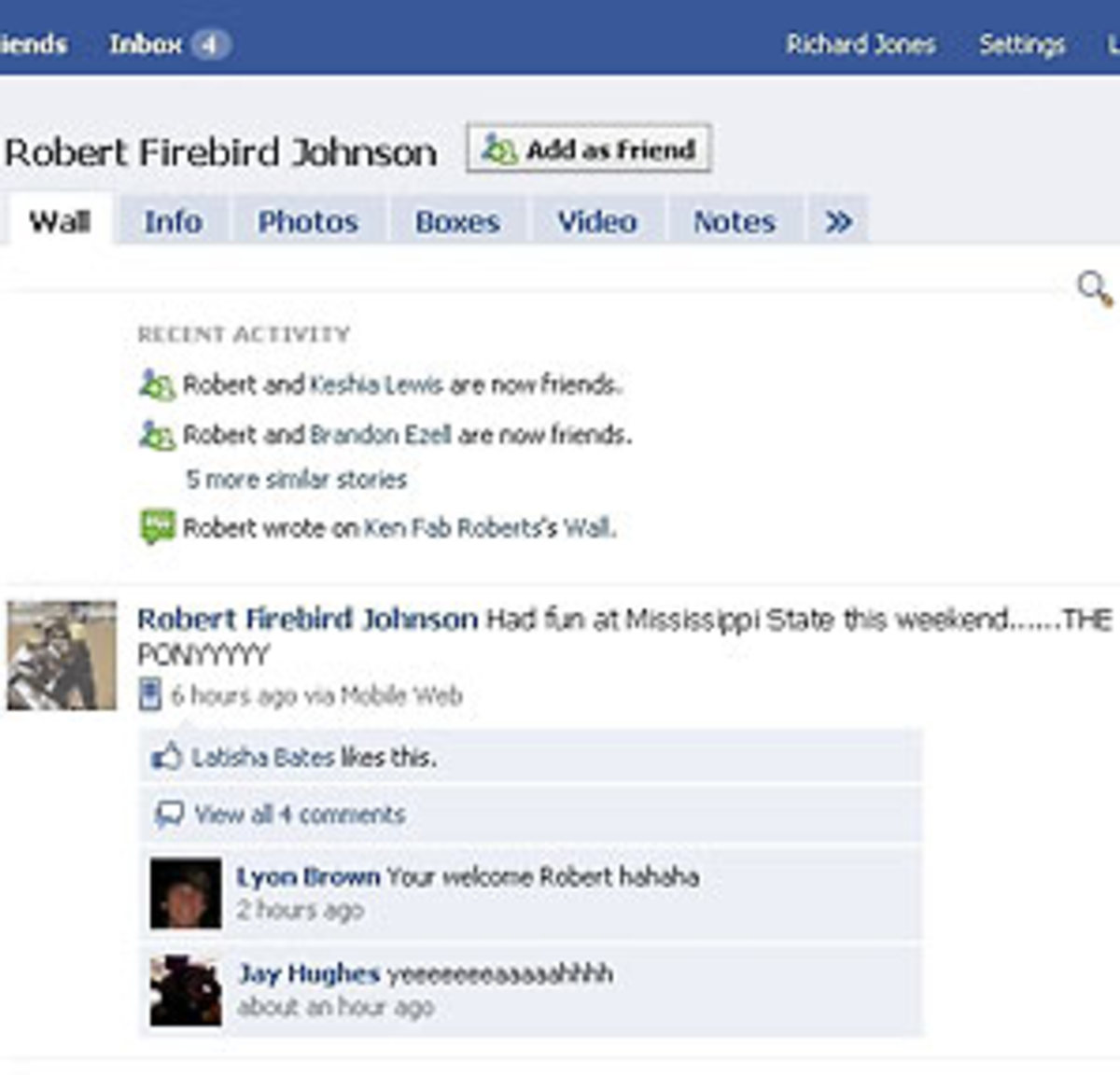
Recruits would be wise not to get too personal on Facebook, Web
The nation's recruits might want to consider this option. This past weekend, three players visiting Mississippi State posted messages on their Facebook pages referencing the Pony, which, for those not familiar with the Golden Triangle (comprising the Mississippi metropolises of Starkville, West Point and Columbus), is a, ahem, gentlemen's club.
One recruit told the Jackson (Miss.) Clarion-Ledger on Tuesday that the posts were a joke and that they didn't go to the club, but now Mississippi State is investigating whether the recruits' hosts -- current Bulldogs players -- took them. (Hint: Check with the football recruiting office to find out if any of the hosts asked for his recruit's $60 weekend entertainment stipend in $1 bills.) If that's the case, those players could be in big trouble. If anyone associated with the football staff ordered the trip, Mississippi State would have a problem with the NCAA.
It's highly unlikely any coach or staffer in a major conference would be dumb enough to endorse a strip club visit, because in today's termination-for-cause-happy landscape, the cover charge also includes a one-way ticket to the unemployment office. The NCAA frowns on the use of strippers in recruiting -- especially after Colorado discovered in 2004 that players had brought in strippers for a recruiting party and that a low-level football staffer had given $2,000 in cash to a call girl service.
Jameon Lewis, Robert Johnson and Jay Hughes probably don't know the history of the NCAA's abhorrence to the confluence of G-strings and official visits, but they should have some idea that even the insinuation that they were taken to one on an official visit would raise eyebrows. So why post it for the world to see? The players removed the posts from their pages, but by then it was too late. By Monday, screen grabs of their Facebook pages were all over the Web. So everyone knew Johnson had posted a status update that said "Had fun at Mississippi State this weekend......THE PONYYYYY" (as shown in the above picture).
Joke or not, the Pony will follow these three players into college, just as five-year-old pictures of Florida recruits Leon Orr and Lynden Trail will follow them into college. Orr and Trail posted questionable photos of themselves years ago on their MySpace pages, and a blogger found them and posted them. The reaction always follows the same pattern. Information appears on one blog or message board, gets picked up by the major sports blogs and winds up splashed all over the Web.
What the recruits don't seem to realize is that the explosion of social networking sites has spawned an entirely new creature: the Recruitnik Cyberstalker. Unlike urchins such as myself who get paid to look for that stuff, these guys receive no compensation other than the joy of knowing they've made life miserable for a rival school.
In other words, players committed to Ohio State should understand that some Michigan fan is trolling the Web looking for their dirty laundry -- and vice versa. Players committed to Miami should know that Florida and Florida State fans with too much time on their hands will scour Facebook profiles and MySpace pages looking for incriminating evidence.
The cyberstalkers may not have lives, but that doesn't preclude them from discovering legitimate information. If a tip from a cyberstalker leads to a real story, I and the rest of the mainstream media will pursue it. Just ask USC coach Lane Kiffin. When Kiffin left Tennessee last week, his exit prompted so much anger that rumors started flying. Now, Kiffin has everyone from ESPN to TMZ chasing down leads about him. Fortunately for him, he didn't have a public Facebook profile.
Heed this advice, recruits. If you don't want me calling to ask if you went to a strip club or why you were photographed wearing a gang flag, don't put it on the Internet. I was young once. I know there are things you'd rather your parents not read.
Like some of you, I even misbehaved on an official visit. I drank my first beer on the only all-expenses-paid football recruiting trip I took. Even in 1996, the NCAA forbade giving recruits alcohol, but my host -- unbeknownst to the coaching staff -- took me to a bartending class and then to a series of parties. My first sip of suds came from a keg of Milwaukee's Best Light. (Shockingly, I didn't swear off beer on the spot.) And what was the name of this renegade school?
Princeton.
Of course, no one of consequence found out, first because no one cared about my recruitment, and second because none of the friends I told had any outlet to distribute the information to the wider world. Facebook was eight years from being invented, and only the early adopters in my peer group had an e-mail address.
Maybe that's why people in my generation and older can't understand why today's youngsters don't grasp that everything on the Internet is public. When I was in high school, I never would have stood in a crowded public place and yelled out personal information I didn't want my parents, teachers and coaches to know. Yet that's exactly what recruits and other teens do -- times a million -- when they leave their Facebook pages open for public viewing.
Recruits, I love the fact that I can find most of your cell phone numbers with a few keystrokes. I love that I can find out which college you like today. It makes my job easier. But if you keep leaving all your information in the open for the world to blog about, it's going to make your lives miserable.




